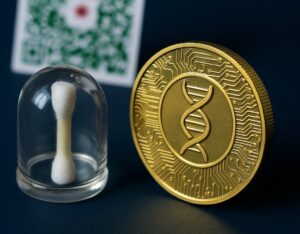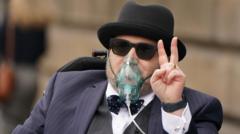After two days of deliberations, the conclave of cardinals has selected a successor to Pope Francis, signaling the Catholic Church's transition into a new era of leadership. The identity of the new pope is anticipated to be disclosed shortly as crowds gather eagerly in Vatican City.**
New Pope Elected as White Smoke Signals Decision from Conclave**

New Pope Elected as White Smoke Signals Decision from Conclave**
Revelations from Vatican as cardinals elect a new pontiff, following the death of Pope Francis.**
In a moment steeped in anticipation and tradition, the Vatican announced that white smoke has emerged from the chimney of the Sistine Chapel, a clear indicator that the cardinals have successfully elected a new pope. This moment arrives two days into a conclave that saw 133 cardinals deliberating intensely following the death of Pope Francis in April. The new pontiff’s identity will soon be revealed to the world gathered in St. Peter's Square.
As crowds swell in Vatican City, eager to witness the new leader emerge from the balcony for the first time, many are reflecting on the uncertain future of the church. In the wake of Pope Francis’ progressive agenda, questions loom over whether the newly elected pope will continue down that path or adopt an alternative approach.
The conclave, the first in 12 years, has highlighted divisions among cardinals, which many believe could influence the church's direction amidst pressing societal issues. With an unprecedented assembly of cardinals, many appointed during Francis' tenure, finding consensus presented a challenge. Even so, the decision came swiftly, echoing patterns observed in previous papal elections which typically span two to three days.
Francesco D’Auria, a church scholar, articulated, "This beat signifies not just an election, but a pivotal moment for the Church moving forward." As congregants and onlookers from around the globe await the next announcement, it is expected that the cardinal tasked with delivering the papal news will officially declare, "Habemus Papam," meaning "We have a pope,” followed by his new name — a custom steeped in centuries of tradition.
In the interim, preparations are underway within the Apostolic Palace, aligning with protocols that dictate the swift transition of power. Once declared, the new pope will promptly don the papal attire in a solemn ceremony.
The palpable excitement amongst the thousands gathered is evident; spectators are already chanting and waiting in rapt attention as the bells of St. Peter's Basilica ring in celebration of the momentous occasion. The last moments have ignited various sentiments surrounding more immediate concerns within the Church, including votes on clerical matters and inclusivity, leading into what could be a transformative pontificate.
With both anticipation and nervous excitement filling the air, the world watches as the new pope prepares to step into his role amid expectations for unity and guidance in a rapidly changing society. This historic day not only marks a transition of leadership but also the enduring resilience and adaptability of the Catholic Church in the face of modern challenges.
As crowds swell in Vatican City, eager to witness the new leader emerge from the balcony for the first time, many are reflecting on the uncertain future of the church. In the wake of Pope Francis’ progressive agenda, questions loom over whether the newly elected pope will continue down that path or adopt an alternative approach.
The conclave, the first in 12 years, has highlighted divisions among cardinals, which many believe could influence the church's direction amidst pressing societal issues. With an unprecedented assembly of cardinals, many appointed during Francis' tenure, finding consensus presented a challenge. Even so, the decision came swiftly, echoing patterns observed in previous papal elections which typically span two to three days.
Francesco D’Auria, a church scholar, articulated, "This beat signifies not just an election, but a pivotal moment for the Church moving forward." As congregants and onlookers from around the globe await the next announcement, it is expected that the cardinal tasked with delivering the papal news will officially declare, "Habemus Papam," meaning "We have a pope,” followed by his new name — a custom steeped in centuries of tradition.
In the interim, preparations are underway within the Apostolic Palace, aligning with protocols that dictate the swift transition of power. Once declared, the new pope will promptly don the papal attire in a solemn ceremony.
The palpable excitement amongst the thousands gathered is evident; spectators are already chanting and waiting in rapt attention as the bells of St. Peter's Basilica ring in celebration of the momentous occasion. The last moments have ignited various sentiments surrounding more immediate concerns within the Church, including votes on clerical matters and inclusivity, leading into what could be a transformative pontificate.
With both anticipation and nervous excitement filling the air, the world watches as the new pope prepares to step into his role amid expectations for unity and guidance in a rapidly changing society. This historic day not only marks a transition of leadership but also the enduring resilience and adaptability of the Catholic Church in the face of modern challenges.





















